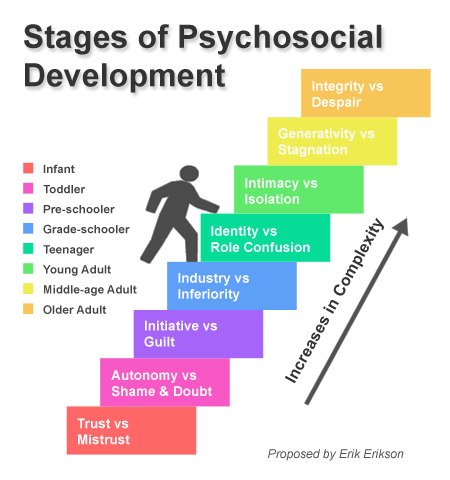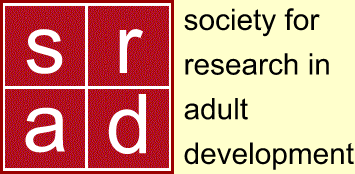Lesson 2: The Study of Adult Development
Attention
Many researchers are interested in adult development as our population grows older. There is the Society for Research in Adult Development and an entire division of the American Psychological Association, Division 20: Adult Development and Aging
Learning Outcomes
Upon completion of this lesson's material, students will be able to:
- Identify personal perspectives on old age and the role that the elderly play in our lives.
- Identify opportunities for generativity among elder family members and clients
Teaching
Read Chapter 1 The Study of Adult Development in Vaillant. This chapter introduces you to the "Study of Adult Development" conducted at Harvard University.
Read Chapter 2 Ripeness is All: Social and Emotional Maturation in Vaillan
According to Vaillant, the elderly are less depressed than the general population and the majority suffer little incapacitating illness before the one that comes along and kills them. How does this mesh with your own perspectives of the elderly?
"Life is full of misery, loneliness, and suffering - and it's all over much too soon." -Woody Allen
"Don't stop having fun when you get older because you will get older when you stop having fun." -Unknown author
In this first chapter we are introduced to Mr. Pirelli. According to his childhood biography, we would predict that he would not have turned out as well as he did. Early environmental circumstances play a role in our lives, but they don't form destiny. This concept is the resiliency of an individual. Resiliency is the ability to recover readily from illness, depression, adversity, or the like; buoyancy (Dicitonary.com).
Consider the following list of findings:
- It is not the bad things that happen to us that doom us; it is the good people that happen to us at any age that facilitate enjoyable old age.
- Healing relationships are facilitated by a capacity for gratitude, for forgiveness, and for taking people inside.
- A good marriage at age 50 predicted positive aging at 80. But, surprisingly, low cholesterol at 50 did not.
- Alcohol abuse - unrelated to unhappy childhood - consistently predicted unsuccessful aging, in part because alcoholism damaged future social supports.
- Learning to play and create after retirement and learning to gain younger friends, as we lose older ones, adds more to life's enjoyment than retirement income.
- Objective good physical health was less important to successful aging than was subjective health.
It is very apparent in this first chapter, how much Vaillant values the details of an individual's story. So much of psychology is based on statistics (quantitative analysis to provide for predictions and models). The truth may be that the "devil" (and possibly the "angel") is "in the details".
Erikson's Stages of Development
Review this brief outline of Erikson's Psychosocial Development Theory.

One of the challenges of today's elderly is the ethic surrounding the YOUNG taking care of OLD. While this contributes to a stable society, it does not contribute to human development. As Vaillant states, "biology flows downhill".
- Generativity has to do with giving to, and taking care of, the next generation. Passing on wisdom and knowledge.
- How can the elderly "take care" of the next generation when they are frail?
- What do they have to offer regardless of their physical, or even psychological, state?
- Definition of generativity: a concern for people besides self and family that usually develops during middle age; especially : a need to nurture and guide younger people and contribute to the next generation—used in the psychology of Erik Erikson (http://www.merriam-webster.com/medical/generativity)
There is a season to give ourselves away...and if we do this too early then we fail to develop...we give ourselves away before we are ripe.
There is another side to generativity as well...it is also a time when the old are learning from the young. Times change and a quality relationship between generations, and even spanning generations (such as grandparents and their grandkids) provides an opportunity for reciprocal development.
Read the following articles about intergenerational relationships and communication:
12 Stories That Prove Grandparents Make Life So Much Sweeter
Issues in Intergenerational Communication
The Power of Family Story Telling
Assessment
Lesson 2 Discussion (for online class only)
On p. 4 of Vaillant you can read the following sentence: "Old age is like a minefield; if you see footprints leading to the other side, step in them." Reflect on what this means to you, your relationship with the older people in your life, and what it means to you as a mental health worker.
Lesson 2 Quiz
- Provide an example of how an older person engages in "caring for others" in your family.
- Detail a plan that you might engage in with an older adult client to assist them in experiencing the same kind of generativity that you describe in Question 1.
